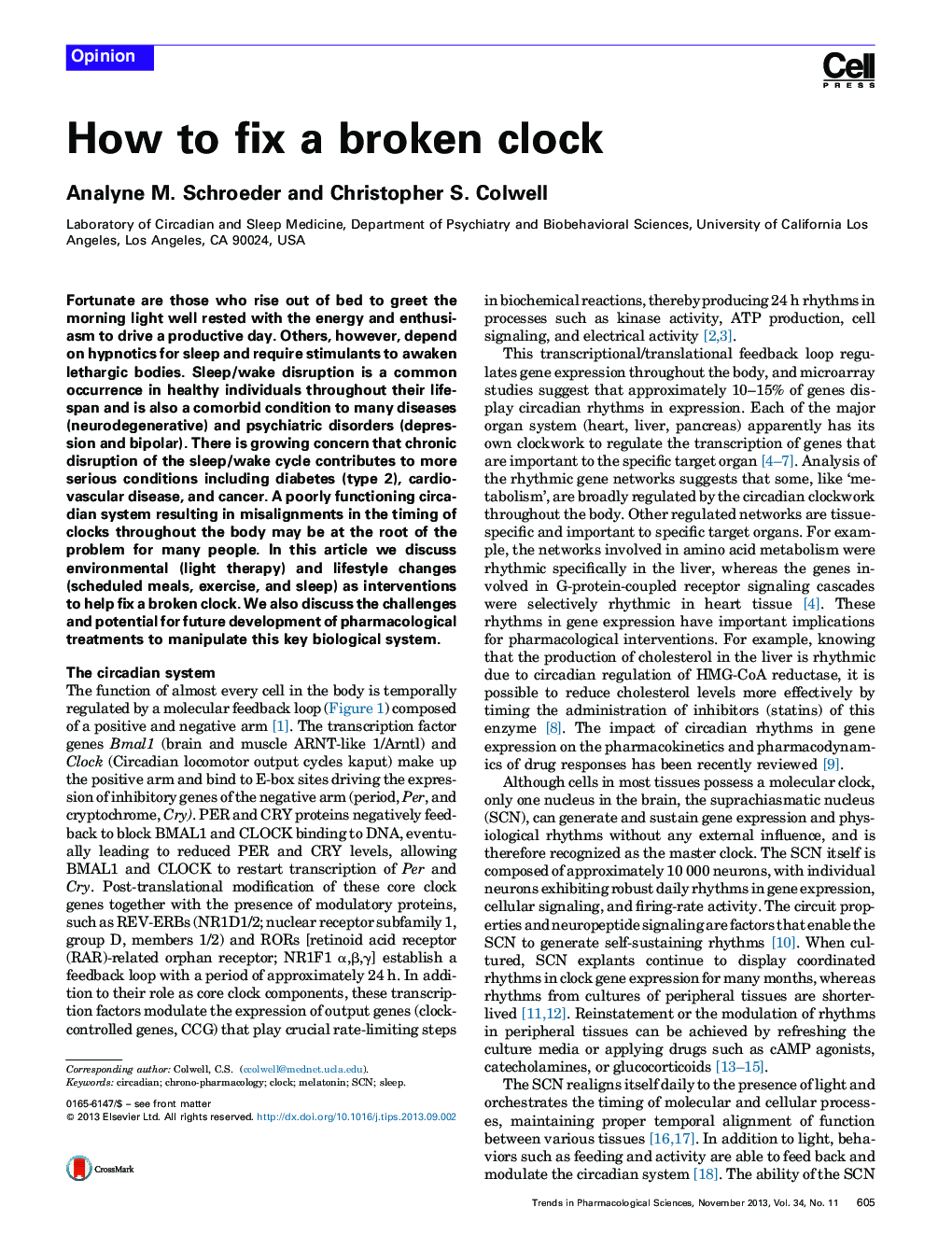| Article ID | Journal | Published Year | Pages | File Type |
|---|---|---|---|---|
| 2572673 | Trends in Pharmacological Sciences | 2013 | 15 Pages |
•Circadian dysfunction is a growing concern in our society and interventions are needed.•Scheduled light exposure, meals, and exercise may strengthen circadian function.•Melatonin is among the best-studied circadian modulators available.•Promising new drugs may come from re-purposing known agents.•New high-throughput screens are identifying novel compounds.
Fortunate are those who rise out of bed to greet the morning light well rested with the energy and enthusiasm to drive a productive day. Others, however, depend on hypnotics for sleep and require stimulants to awaken lethargic bodies. Sleep/wake disruption is a common occurrence in healthy individuals throughout their lifespan and is also a comorbid condition to many diseases (neurodegenerative) and psychiatric disorders (depression and bipolar). There is growing concern that chronic disruption of the sleep/wake cycle contributes to more serious conditions including diabetes (type 2), cardiovascular disease, and cancer. A poorly functioning circadian system resulting in misalignments in the timing of clocks throughout the body may be at the root of the problem for many people. In this article we discuss environmental (light therapy) and lifestyle changes (scheduled meals, exercise, and sleep) as interventions to help fix a broken clock. We also discuss the challenges and potential for future development of pharmacological treatments to manipulate this key biological system.
